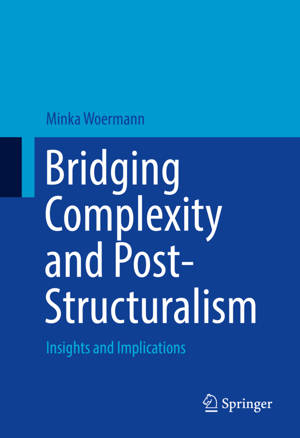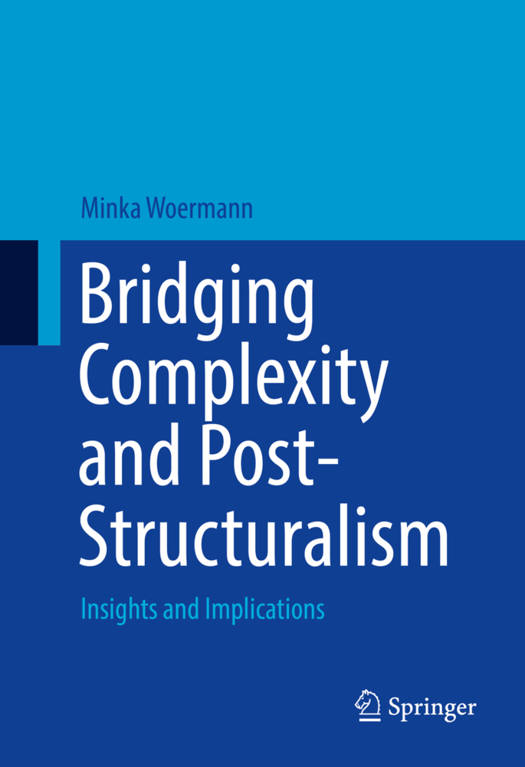
- Afhalen na 1 uur in een winkel met voorraad
- Gratis thuislevering in België vanaf € 30
- Ruim aanbod met 7 miljoen producten
- Afhalen na 1 uur in een winkel met voorraad
- Gratis thuislevering in België vanaf € 30
- Ruim aanbod met 7 miljoen producten
Zoeken
Bridging Complexity and Post-Structuralism
Insights and Implications
Minka Woermann
Hardcover | Engels
€ 111,95
+ 223 punten
Uitvoering
Omschrijving
This work addresses the topic of philosophical complexity, which shares certain assumptions with scientific complexity, cybernetics, and General Systems Theory, but which is also developing as a subject field in its own right.
Specifically, the post-structural reading of philosophical complexity that was pioneered by Paul Cilliers is further developed in this study. To this end, the ideas of a number of contemporary French post-structural theorists and their predecessors - including Derrida, Nancy, Bataille, Levinas, Foucault, Saussure, Nietzsche, Heidegger, and Hegel - are introduced. The implications that their various insights hold for our understanding of complex human systems are teased out at the hand of the themes of economy, (social) ontology, subjectivity, epistemology, and ethics. The analyses are also illuminated at the hand of the problematic of the foreigner and the related challenges of showing hospitality to foreigners.
The study presents a sophisticated account of both philosophical complexity and philosophies of difference. By relating these subject fields, the study also extends our understanding of philosophical complexity, and offers an original characterisation of the aforementioned philosophers as complex thinkers.
Specifically, the post-structural reading of philosophical complexity that was pioneered by Paul Cilliers is further developed in this study. To this end, the ideas of a number of contemporary French post-structural theorists and their predecessors - including Derrida, Nancy, Bataille, Levinas, Foucault, Saussure, Nietzsche, Heidegger, and Hegel - are introduced. The implications that their various insights hold for our understanding of complex human systems are teased out at the hand of the themes of economy, (social) ontology, subjectivity, epistemology, and ethics. The analyses are also illuminated at the hand of the problematic of the foreigner and the related challenges of showing hospitality to foreigners.
The study presents a sophisticated account of both philosophical complexity and philosophies of difference. By relating these subject fields, the study also extends our understanding of philosophical complexity, and offers an original characterisation of the aforementioned philosophers as complex thinkers.
Specificaties
Betrokkenen
- Auteur(s):
- Uitgeverij:
Inhoud
- Aantal bladzijden:
- 205
- Taal:
- Engels
Eigenschappen
- Productcode (EAN):
- 9783319390451
- Verschijningsdatum:
- 7/10/2016
- Uitvoering:
- Hardcover
- Formaat:
- Genaaid
- Afmetingen:
- 156 mm x 234 mm
- Gewicht:
- 485 g

Alleen bij Standaard Boekhandel
+ 223 punten op je klantenkaart van Standaard Boekhandel
Beoordelingen
We publiceren alleen reviews die voldoen aan de voorwaarden voor reviews. Bekijk onze voorwaarden voor reviews.








